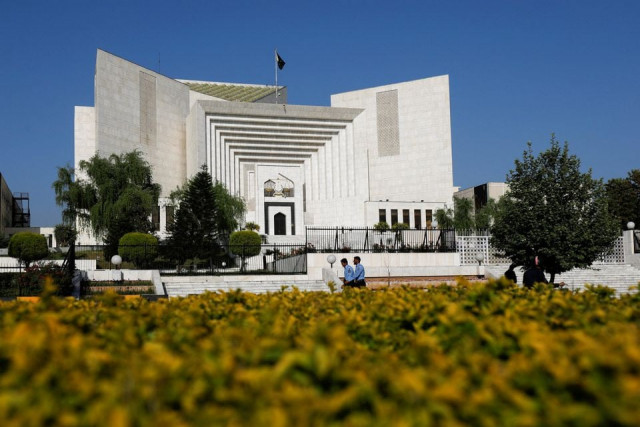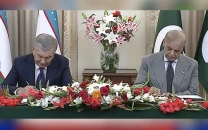SC wonders if it should disqualify MNAs who tweaked NAB law
Justice Shah notes according to PTI lawyer, lawmakers breached public trust

Supreme Court judge Justice Mansoor Ali Shah on Wednesday inquired that according to the PTI lawyer’s arguments, the lawmakers who had passed the amendments to the country’s accountability law had breached the public’s trust and hence should they be disqualified under Article 62 1(e) of the Constitution.
A three-judge special bench, headed by Chief Justice of Pakistan Umar Ata Bandial and comprising Justice Ijazul Ahsan and Justice Shah, resumed the hearing of a petition filed by the PTI chief against the current government’s changes in the National Accountability Ordinance (NAO) 1999.
Imran's lawyer Khawaja Haris while presenting his arguments said rulers came into power based on the public’s trust.
He added that according to Sharia, accountability of the rulers was necessary to maintain that trust.
The lawyer further said public trust was broken when rulers covered up their actions.
“Under the NAB [National Accountability Bureau] law amendments, giving billions to a third party is no longer a crime,” he maintained.
The PTI chief’s lawyer argued that the property of public officeholders was owned by the public.
He added that the fundamental rights of the people were directly affected by corruption in public property.
Later, the CJP adjourned the hearing by directing Haris to complete his arguments till Thursday (today).
During the previous hearing held a day earlier, Justice Shah observed that no other political party or citizen except the PTI chairman had challenged the recent amendments to the country's accountability law.
“Why is Imran Khan the only one affected by these amendments out of the country's 25 million population?” Justice Shah inquired.
Haris while presenting his arguments said that in Islam, there was a command of accountability of government officials.
He further contended that according to Islam, the ruler was responsible for any injustice in the country.
In his plea, the PTI chief had described the amendments as "violative of fundamental rights".
He further claimed that the changes in the law were made to benefit influential people and legitimise corruption.
He added in the petition that the amendments were aimed at setting aside corruption charges against the president, prime minister, chief ministers and ministers.
Imran further contended in his plea that the changes allowed convicted public office-holders to have their sentences reversed.
The petition contended that most of the amendments were “person-specific” therefore NAB should be asked to provide details of all such cases which were related to prominent and influential holders of public office, especially about the cases pertaining to offences of owning assets beyond known sources of income and misuse of authority.



















COMMENTS
Comments are moderated and generally will be posted if they are on-topic and not abusive.
For more information, please see our Comments FAQ